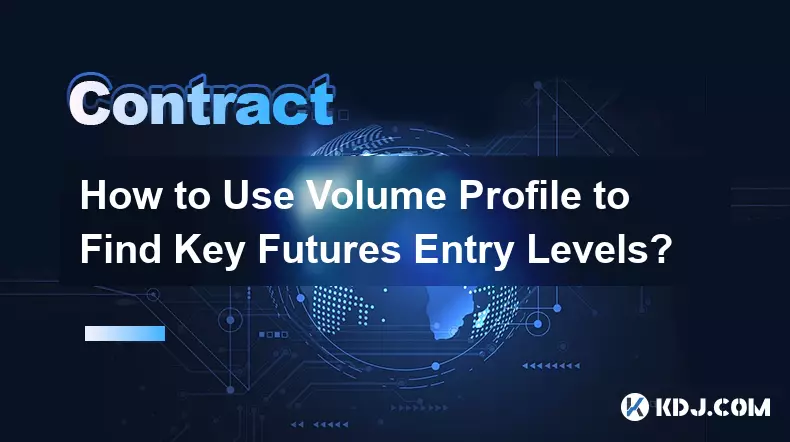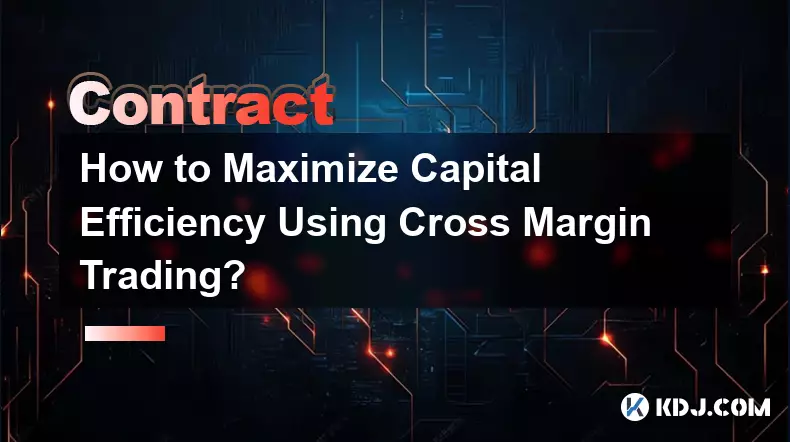-
 bitcoin
bitcoin $87959.907984 USD
1.34% -
 ethereum
ethereum $2920.497338 USD
3.04% -
 tether
tether $0.999775 USD
0.00% -
 xrp
xrp $2.237324 USD
8.12% -
 bnb
bnb $860.243768 USD
0.90% -
 solana
solana $138.089498 USD
5.43% -
 usd-coin
usd-coin $0.999807 USD
0.01% -
 tron
tron $0.272801 USD
-1.53% -
 dogecoin
dogecoin $0.150904 USD
2.96% -
 cardano
cardano $0.421635 USD
1.97% -
 hyperliquid
hyperliquid $32.152445 USD
2.23% -
 bitcoin-cash
bitcoin-cash $533.301069 USD
-1.94% -
 chainlink
chainlink $12.953417 USD
2.68% -
 unus-sed-leo
unus-sed-leo $9.535951 USD
0.73% -
 zcash
zcash $521.483386 USD
-2.87%
How to trade Bitcoin contracts
Trading Bitcoin contracts requires a comprehensive understanding of market dynamics, risk management, and advanced trading techniques like leverage and hedging.
Nov 08, 2024 at 02:14 am

How to Trade Bitcoin Contracts: A Comprehensive Guide
Introduction:Bitcoin contracts, also known as Bitcoin futures, are financial instruments that allow traders to speculate on the future price of Bitcoin without directly owning the underlying asset. They offer a convenient and leveraged way to participate in the highly volatile Bitcoin market. This comprehensive guide provides a detailed explanation of how to trade Bitcoin contracts, covering everything from market dynamics to risk management strategies.
Understanding Bitcoin Contracts
- What are Bitcoin contracts?Bitcoin contracts are standardized agreements to buy or sell a specified amount of Bitcoin at a predetermined price on a future date. They are traded on regulated exchanges, ensuring transparency and security.
- Types of Bitcoin contracts:There are two main types of Bitcoin contracts: futures and options. Futures contracts obligate the holder to buy or sell Bitcoin at the agreed-upon price on the expiration date, while options contracts give the holder the right, but not the obligation, to do so.
Market Dynamics
- Factors influencing Bitcoin contract prices:Bitcoin contract prices are influenced by various factors, including the spot price of Bitcoin, market sentiment, supply and demand, and global economic conditions. Traders need to stay informed about these factors to make informed trading decisions.
- Trading strategies:Traders can employ various strategies to trade Bitcoin contracts, such as long positions (betting on price increase), short positions (betting on price decrease), and arbitrage (taking advantage of price differences between exchanges).
Risks Involved
- Price volatility:Bitcoin is known for its high price volatility, which can lead to significant gains or losses for traders. It's crucial to manage risk and use appropriate leverage ratios.
- Counterparty risk:Traders may be exposed to counterparty risk, which arises from the possibility that the other party to the contract may default on their obligations. Only trade on reputable exchanges that have strong risk management systems.
Trading Process
- Choosing a trading platform:Select a reputable and regulated exchange that offers Bitcoin contracts. Ensure they have competitive trading fees, high liquidity, and a user-friendly platform.
- Funding your account:Before trading Bitcoin contracts, you need to fund your trading account with the necessary capital. Most exchanges accept deposits in Bitcoin, other cryptocurrencies, or fiat currencies.
- Placing an order:To place an order, specify the contract type, quantity, price, and expiration date. You can choose between market orders (executed immediately at the best available price) or limit orders (executed only when the specified price is reached).
- Managing your risk:Employ risk management strategies such as stop-loss orders, take-profit orders, and position sizing to limit potential losses. Monitor your positions regularly and adjust them as needed.
- Closing your position:To close a position, place an opposite order (e.g., if you bought a futures contract, sell it to close the position). You can also choose to let the contract expire, in which case your obligation to buy or sell Bitcoin will be settled in physical Bitcoin.
Advanced Trading Techniques
- Leverage:Bitcoin contracts offer leverage, which allows traders to amplify their potential profits. However, it also amplifies potential losses, so it's essential to use it cautiously.
- Hedging:Traders can use Bitcoin contracts to hedge against risk in their Bitcoin spot positions or other investments. This reduces overall portfolio volatility.
- Arbitrage:Traders can exploit price differences between exchanges by buying Bitcoin contracts on one exchange and selling them on another. However, this requires experience and knowledge of market dynamics.
Disclaimer:info@kdj.com
The information provided is not trading advice. kdj.com does not assume any responsibility for any investments made based on the information provided in this article. Cryptocurrencies are highly volatile and it is highly recommended that you invest with caution after thorough research!
If you believe that the content used on this website infringes your copyright, please contact us immediately (info@kdj.com) and we will delete it promptly.
- Bitcoin Drops Amidst Analyst Warnings and Shifting Market Sentiment
- 2026-02-05 09:40:02
- Georgia Brothers Sentenced to 20 Years for Elaborate COAM Gambling Fraud Scheme
- 2026-02-05 09:45:01
- MicroStrategy Stock Loss: Pension Funds Face 60% Plunge Amidst Crypto Volatility
- 2026-02-05 10:55:01
- Super Bowl LX: Teddy Swims, Green Day, and a Legacy Toss Set for 2026 Extravaganza
- 2026-02-05 07:20:02
- Fantasy Football Premier League Round 25: Key Player Picks, Tips, and Advice for Optimal Team Performance
- 2026-02-05 07:15:02
- Remittix Launches PayFi Platform with a Generous 300% Bonus Offer, Driving Investor Excitement
- 2026-02-05 07:05:01
Related knowledge

How to Manage Emotions and "Revenge Trading" in Futures?
Feb 05,2026 at 12:19am
Understanding Emotional Triggers in Futures Markets1. Market volatility directly impacts psychological states, often amplifying fear or euphoria based...

How to Analyze Market Sentiment Using the Fear and Greed Index?
Feb 05,2026 at 07:40am
Understanding the Fear and Greed Index1. The Fear and Greed Index is a composite metric designed to quantify prevailing emotional states among cryptoc...

How to Use Volume Profile to Find Key Futures Entry Levels?
Feb 04,2026 at 11:39pm
Understanding Volume Profile Structure1. Volume Profile displays the distribution of traded volume at specific price levels over a defined time period...

How to Trade Bitcoin Futures with 100x Leverage? (High-Risk Setup)
Feb 05,2026 at 11:00am
Understanding Bitcoin Futures Mechanics1. Bitcoin futures contracts represent agreements to buy or sell BTC at a predetermined price and date in the f...

How to Maximize Capital Efficiency Using Cross Margin Trading?
Feb 05,2026 at 12:40am
Cross Margin Trading Fundamentals1. Cross margin trading allows traders to use their entire account balance as collateral for open positions across mu...

How to Trade Crypto Contracts During Major News Events? (CPI/FOMC)
Feb 05,2026 at 09:59am
Understanding Market Sensitivity to Macro Data Releases1. Cryptocurrency futures markets exhibit pronounced volatility during U.S. CPI and FOMC announ...

How to Manage Emotions and "Revenge Trading" in Futures?
Feb 05,2026 at 12:19am
Understanding Emotional Triggers in Futures Markets1. Market volatility directly impacts psychological states, often amplifying fear or euphoria based...

How to Analyze Market Sentiment Using the Fear and Greed Index?
Feb 05,2026 at 07:40am
Understanding the Fear and Greed Index1. The Fear and Greed Index is a composite metric designed to quantify prevailing emotional states among cryptoc...

How to Use Volume Profile to Find Key Futures Entry Levels?
Feb 04,2026 at 11:39pm
Understanding Volume Profile Structure1. Volume Profile displays the distribution of traded volume at specific price levels over a defined time period...

How to Trade Bitcoin Futures with 100x Leverage? (High-Risk Setup)
Feb 05,2026 at 11:00am
Understanding Bitcoin Futures Mechanics1. Bitcoin futures contracts represent agreements to buy or sell BTC at a predetermined price and date in the f...

How to Maximize Capital Efficiency Using Cross Margin Trading?
Feb 05,2026 at 12:40am
Cross Margin Trading Fundamentals1. Cross margin trading allows traders to use their entire account balance as collateral for open positions across mu...

How to Trade Crypto Contracts During Major News Events? (CPI/FOMC)
Feb 05,2026 at 09:59am
Understanding Market Sensitivity to Macro Data Releases1. Cryptocurrency futures markets exhibit pronounced volatility during U.S. CPI and FOMC announ...
See all articles










































































